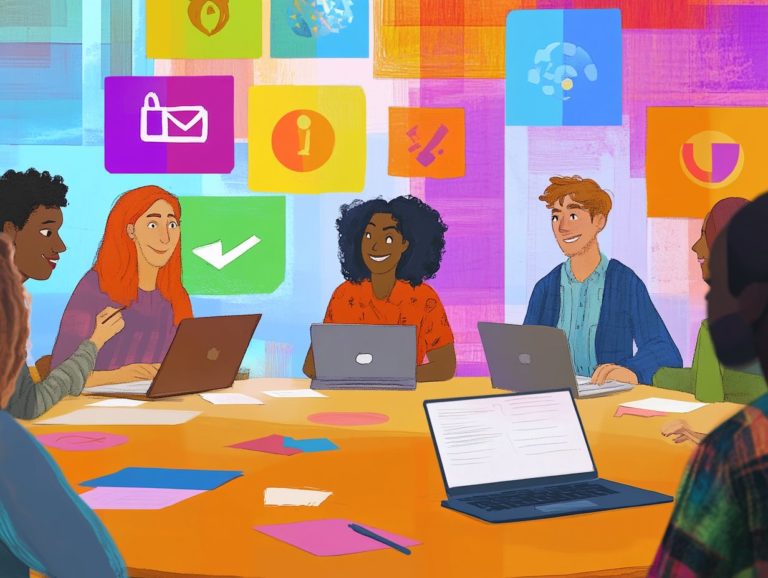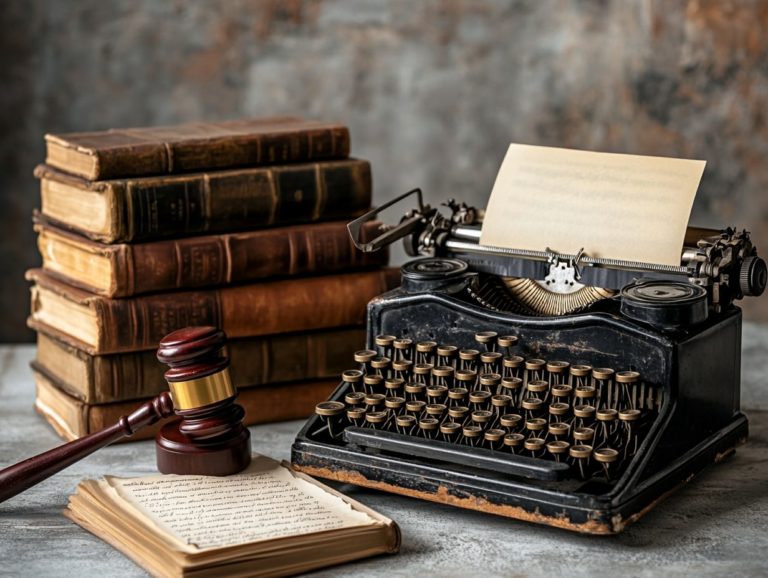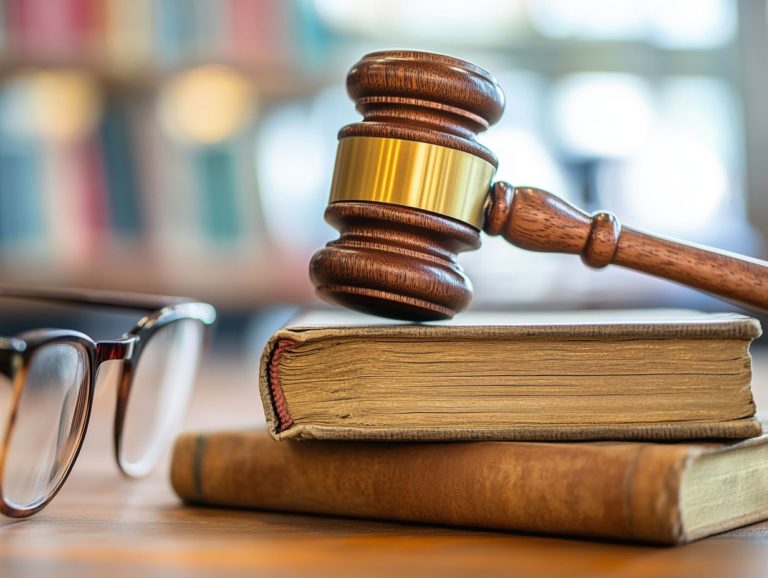The Importance of Copyright in the Publishing Industry
Copyright serves as a crucial pillar in the publishing industry, acting as a safeguard for both authors and publishers.
This exploration delves into the definition and purpose of copyright, examining the essential laws and regulations that shape the landscape. It highlights the myriad benefits copyright offers in protecting original work while providing financial incentives to creators.
You ll also learn about copyright infringement, the common pitfalls to avoid, and the ever-evolving nature of copyright law. Engage with us to gain a deeper understanding of how copyright impacts your work and its trajectory within the publishing realm.
Contents
- Key Takeaways:
- Understanding Copyright
- Copyright Laws in the Publishing Industry
- Benefits of Copyright for Authors and Publishers
- Copyright Infringement and How to Avoid It
- Best Practices for Authors and Publishers
- The Future of Copyright in the Publishing Industry
- Frequently Asked Questions
- What is the significance of copyright in the publishing industry?
- How does copyright impact the publishing industry?
- Who benefits from copyright in the publishing industry?
- Can copyright be applied to all types of publishing materials?
- What happens if someone infringes on a copyrighted work in the publishing industry?
- How can publishers protect their copyrighted material?
Key Takeaways:
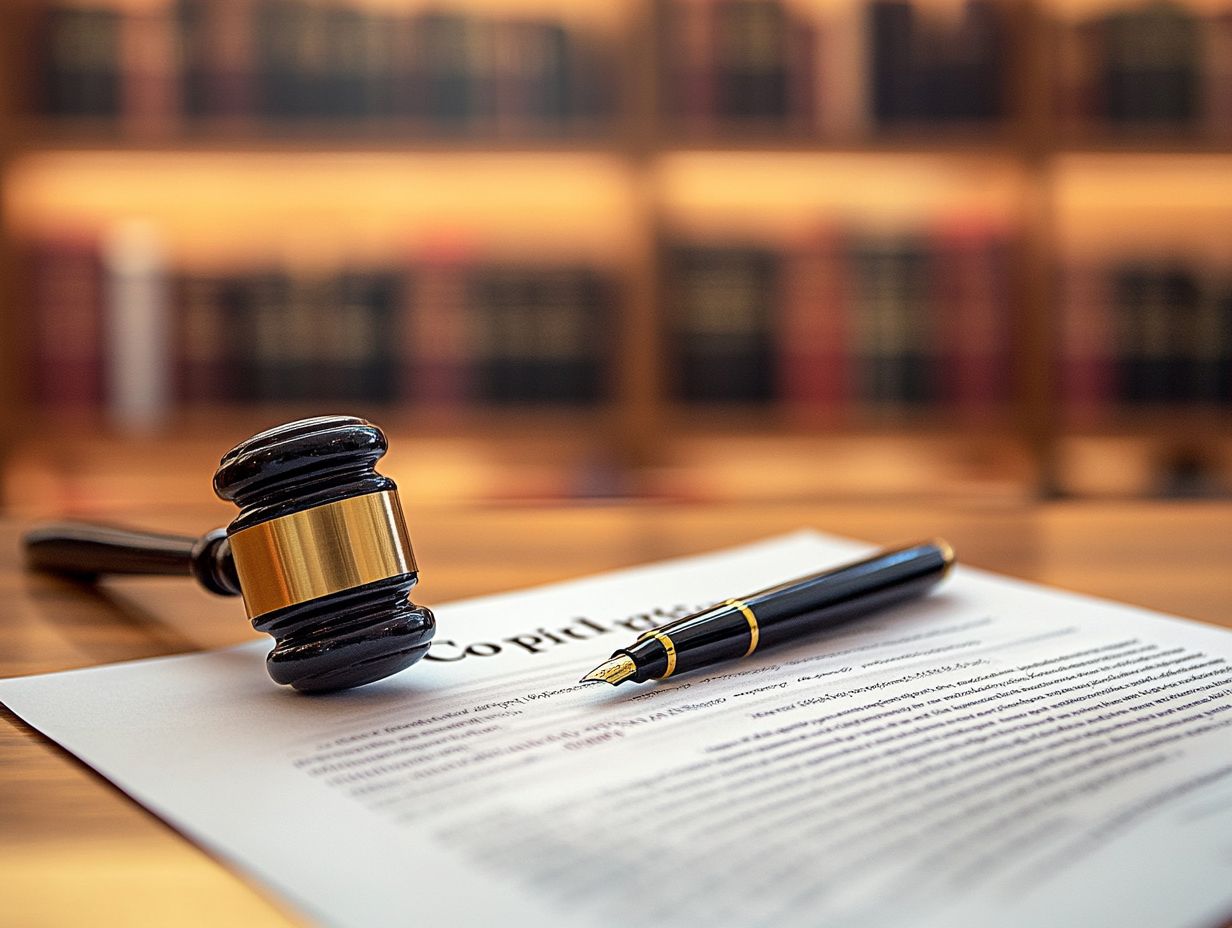
Copyright is crucial for the publishing industry as it protects the rights of authors and publishers and encourages creativity. Understanding copyrights: definition and importance is necessary for authors and publishers to avoid infringement and ensure they receive financial incentives. Despite constantly evolving challenges and potential changes, copyright remains a vital aspect of the publishing industry and its future.
Understanding Copyright
As an author or publisher, you need to understand copyright because it protects your original work.
Copyright gives you control over your creations while promoting academic integrity and fair use in education.
In our digital age, knowing about copyright like public domain and educational exceptions is crucial for anyone involved in publishing or creative work.
Definition and Purpose
Copyright serves as a vital legal mechanism that grants you exclusive rights to your original works, effectively protecting your original work. This concept is essential for enabling creators whether you re a writer, artist, or musician to maintain control over how your work is utilized and shared.
By granting these exclusive rights, copyright not only incentivizes your creativity but also safeguards your financial interests against unauthorized use or reproduction. In today s digital landscape, the implications of copyright extend far beyond mere protection; they highlight the necessity of fair compensation for your original contributions to culture and knowledge.
Thus, understanding copyright gives you the power to navigate the complexities of ownership, ensuring that your innovative endeavors can thrive without the looming threat of infringement.
Copyright Laws in the Publishing Industry
Copyright laws are essential in the publishing industry, and understanding the role of copyright in the fashion industry can provide you with the means to protect your original work and expertly navigate the complexities of licensing agreements.
By adhering to these laws, you not only shape the landscape of scholarly publishing but also influence how works are shared on a global scale.
This framework is further impacted by international treaties and ongoing copyright reform efforts, all designed to adapt to the evolving digital environment and emerging publishing models.
Key Regulations and Requirements
Key regulations and requirements under copyright law dictate how you, as an author or publisher, can utilize and share your works while ensuring compliance with fair use and educational exceptions.
Understanding these rules is crucial for anyone involved in creative industries, as they outline the framework within which your original content can be legally reproduced, distributed, or displayed.
Licensing agreements, or legal contracts that outline how your work can be used, serve as an essential tool in this landscape, allowing you to retain control over how your works are used while generating revenue.
Educational exceptions enable limited use of copyrighted material in teaching, giving you the opportunity to enrich learning experiences without infringing on copyright.
Fair use adds another layer of complexity, allowing you to use small amounts of copyrighted material without permission under certain conditions in contexts such as criticism, comment, news reporting, and research.
Effectively navigating these elements is vital for fostering innovation while respecting intellectual property rights.
Benefits of Copyright for Authors and Publishers
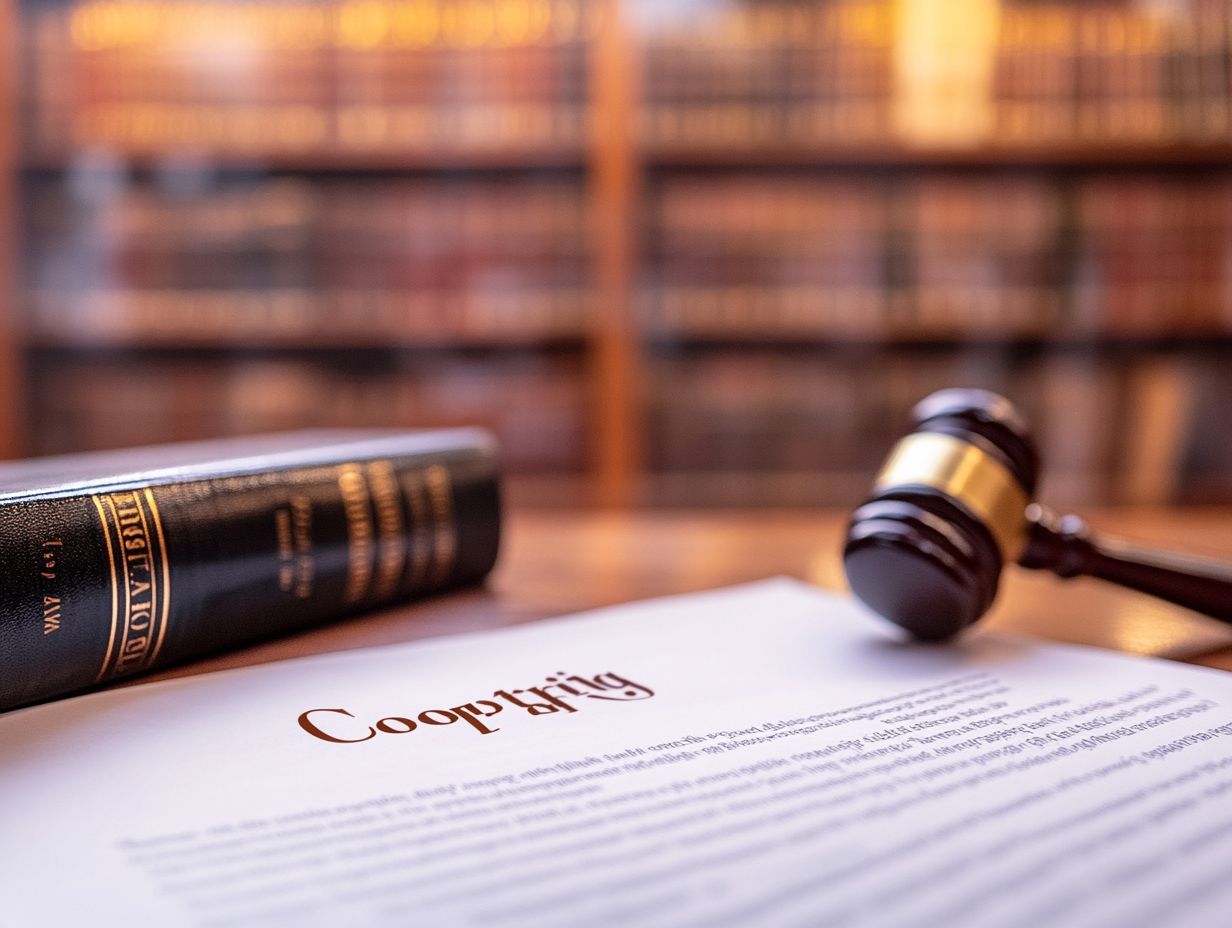
The advantages of copyright for authors and publishers are numerous, providing robust protection for intellectual property and author rights. This can translate into considerable financial incentives and opportunities for growth.
By securing your original works under copyright, you can maximize your earning potential while ensuring that your contributions are acknowledged and respected in both academic and wider communities.
Protection of Intellectual Property
Copyright provides you with robust protection for your intellectual property, ensuring that you maintain control over how your works are utilized and distributed. This legal framework shields your original creations from unauthorized reproduction and gives you the power to make money from your work by allowing others to use it.
By registering your works, you establish a public record of ownership, which becomes a formidable asset in any legal disputes. You can navigate the complexities of enforcement by leveraging various legal remedies, allowing you to pursue infringement claims or settlements with confidence.
Through this proactive management, you can uphold your rights while maximizing the creative potential of your intellectual assets.
Financial Incentives
Securing copyright offers valuable financial incentives, especially in the realms of academic research and book publishing, allowing you to effectively monetize your original works. You can earn royalties from book sales, which can significantly boost your income.
This legal protection not only safeguards your intellectual property but also opens the door to diverse revenue streams. You have the ability to license your works, granting permission for your books or articles to be used in educational settings, adaptations, or translations all of which enhance your overall financial benefits.
Partnering with publishers can lead to significant upfront payments, providing you with the financial stability needed to focus on creating even more content.
Copyright Infringement and How to Avoid It
Worried about copyright infringement? You should be! It s a serious issue for authors and publishers. Failing to navigate this concern can result in serious legal repercussions, including accusations of plagiarism and substantial financial penalties.
You must understand how to avoid copyright infringement to protect your work! It’s essential to safeguard the integrity of your original work and respect the copying restrictions that protect intellectual property rights.
Common Forms of Infringement
Common forms of copyright infringement include unauthorized reproduction of works, plagiarism, and violations of copying restrictions, all of which can severely undermine a creator’s rights.
Each of these actions has the potential to jeopardize both the integrity and financial stability of authors and publishers. For instance, unauthorized reproduction whether through photocopying or digital sharing without consent not only breaches legal agreements but also robs creators of much-needed revenue.
Plagiarism distorts the narrative of a work s authenticity and can inflict significant reputational harm. Violating established copying restrictions raises serious legal concerns and cultivates an environment where creativity is stifled.
As awareness of these issues grows, it s crucial to understand your rights and the potential consequences that accompany such infringements.
Summary
In summary, understanding copyright is vital for authors and publishers. It offers protection for your intellectual property, financial incentives, and a framework to avoid infringement. Keep these insights in mind to support your creative journey!
Best Practices for Authors and Publishers
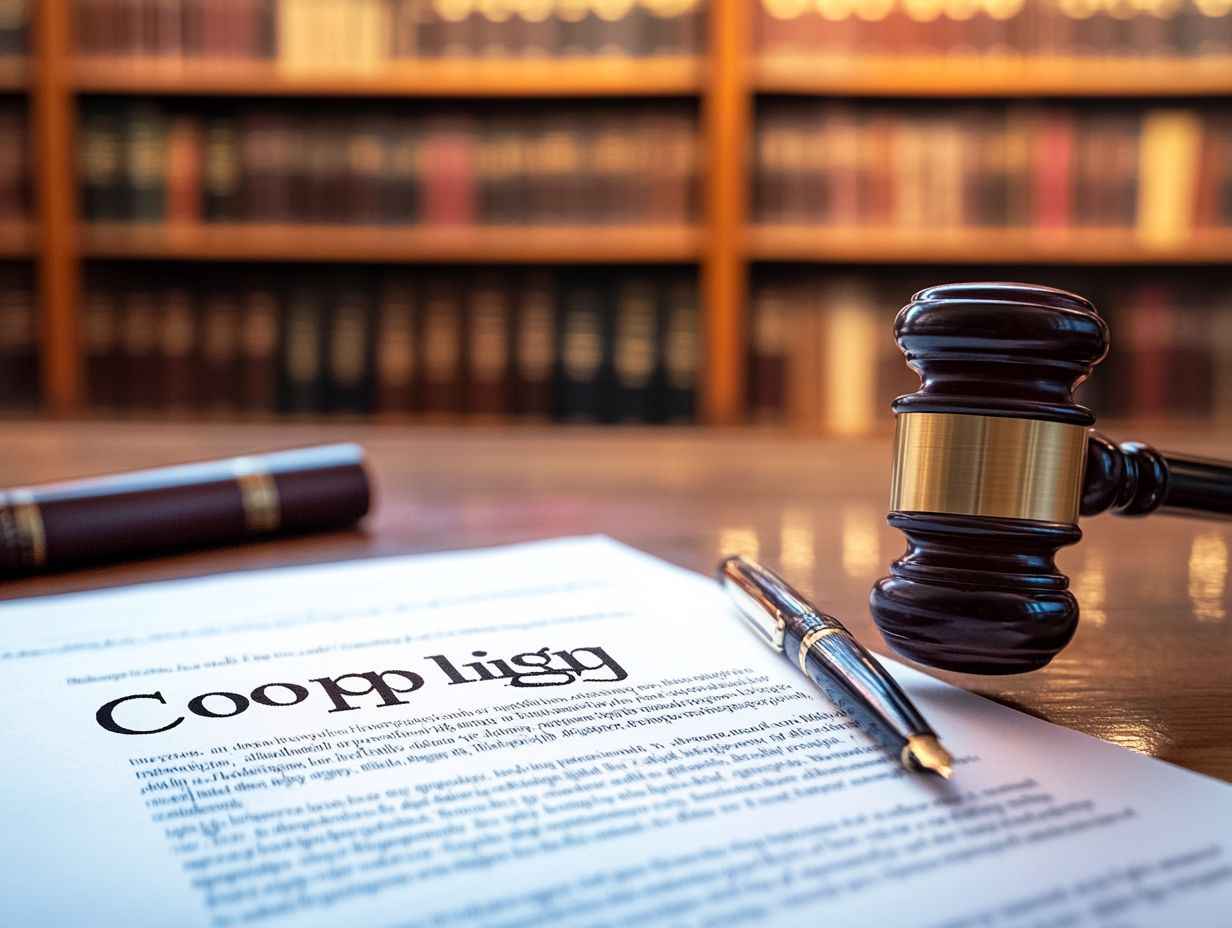
To avoid copyright infringement, authors and publishers should adopt best practices such as seeking legal advice and understanding fair use. Following guidelines for educational purposes is also essential.
Consider registering your works with copyright offices to establish a formal record of ownership. It s crucial to maintain detailed documentation of your development process, showcasing your original ideas and creativity.
Regularly reviewing industry standards for citations and permissions will assist in understanding the complex world of copyright. Digital rights management tools offer extra protection against unauthorized use.
By cultivating an awareness of these strategies, you can better safeguard your intellectual pursuits and foster a sustainable creative process.
The Future of Copyright in the Publishing Industry
Exciting changes are coming to copyright in the publishing industry, driven by ongoing reform efforts that aim to balance the rights of copyright holders with the academic community’s increasing demand for open access and wider dissemination of knowledge.
Current Challenges and Potential Changes
Current challenges in copyright reform focus on balancing the rights of copyright holders with promoting open access for the academic community. This landscape often leaves scholars and institutions grappling with restrictive licensing agreements that hinder innovation and collaboration.
The rapid advancement of digital technologies complicates these discussions, prompting questions about whether existing laws can adapt to emerging formats and mediums. It’s essential for stakeholders educators, publishers, and policymakers to engage in meaningful dialogue addressing these tensions.
Together, we can explore frameworks that prioritize creators’ rights while enhancing knowledge accessibility. Embracing flexible licensing options and establishing clearer guidelines could lead to a more equitable distribution of information.
This would enrich the academic environment and foster a culture of collaboration and innovation.
Frequently Asked Questions
What is the significance of copyright in the publishing industry?
Copyright is crucial in protecting the rights of creators and their intellectual property in the publishing industry. Understanding the role of copyright in digital content ensures that authors, publishers, and other creative professionals are fairly compensated for their work.
How does copyright impact the publishing industry?
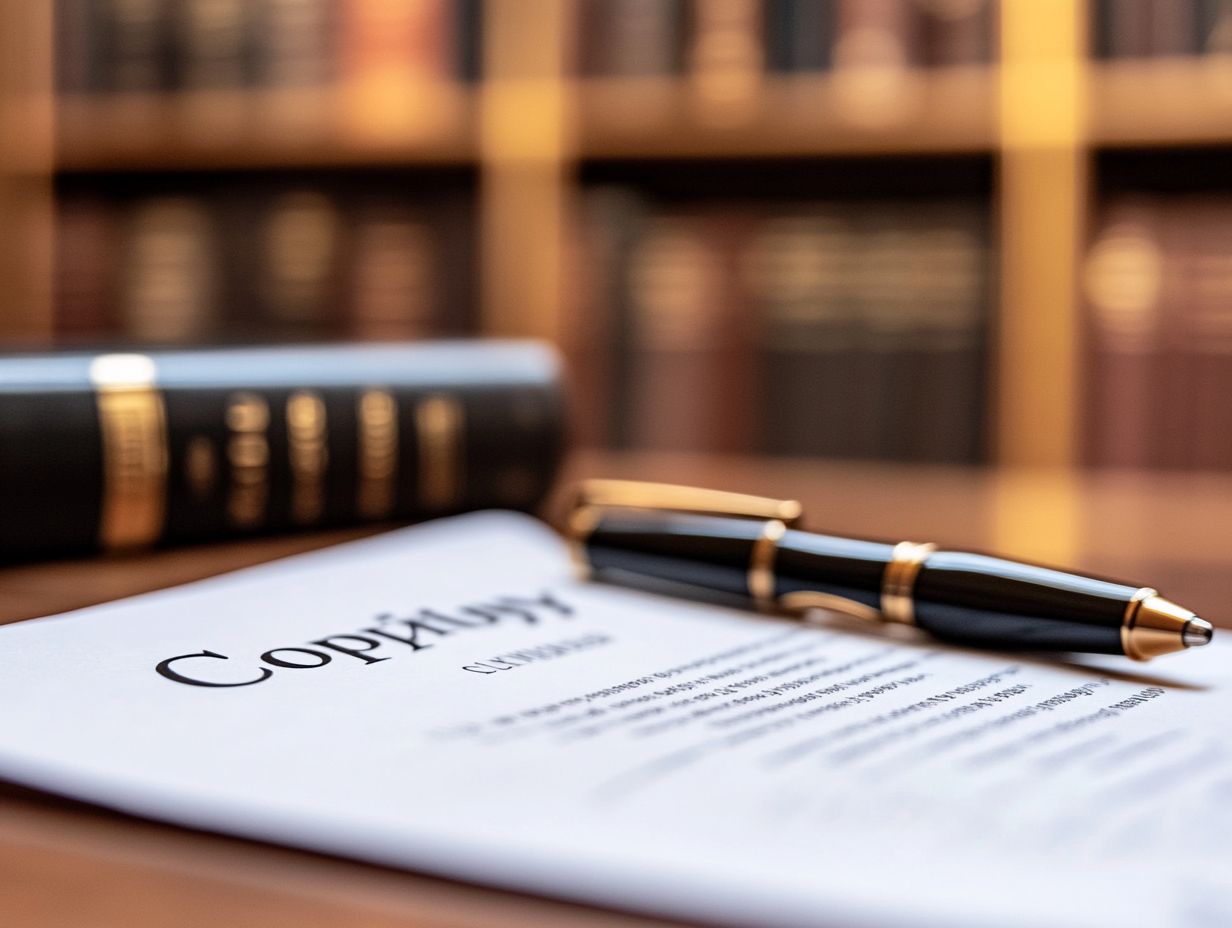
Copyright allows authors and publishers to control how their work is used and distributed. This legal protection incentivizes the creation of new works and maintains a competitive, diverse publishing market.
Who benefits from copyright in the publishing industry?
Copyright benefits both creators and consumers. Creators earn a living from their work, while consumers gain access to a wide variety of high-quality materials.
Can copyright be applied to all types of publishing materials?
Yes, copyright applies to various forms of publishing materials, including books, articles, photographs, artwork, and digital content like blogs and e-books.
What happens if someone infringes on a copyrighted work in the publishing industry?
If someone uses a copyrighted work without permission, they infringe on the creator’s rights. This could lead to legal action, such as a lawsuit, resulting in penalties or fines.
How can publishers protect their copyrighted material?
Publishers can protect their copyrighted material by registering it with the appropriate government agency, such as the US Copyright Office. Including a copyright notice on their works and monitoring for potential infringements is also advisable.
For more information and to safeguard your creative work, consider seeking legal advice today!



